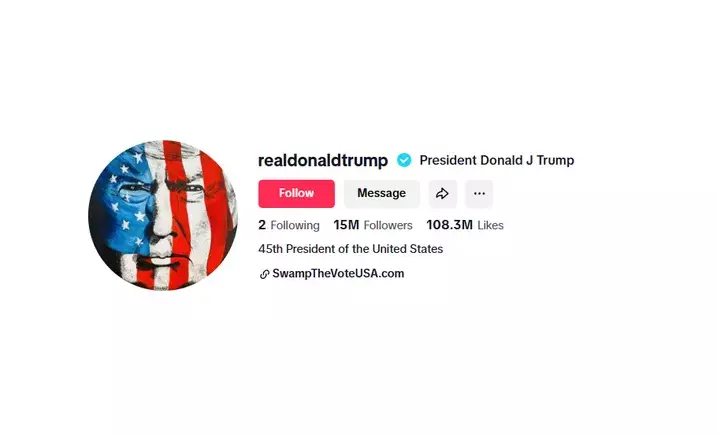The saga surrounding TikTok in the United States has taken another twist, keeping digital users and policymakers on edge. Currently, TikTok operates under a precarious balance, tethered to both legal frameworks and political maneuvering that leave its future uncertain. This article delves into the implications of the ongoing TikTok controversy, analyzing both its operational status and the legal quagmire that could potentially redefine its presence in the U.S. market.
At the heart of the TikTok debate is a recent law aimed at curtailing the influence of foreign-controlled applications within the U.S. The “Protecting Americans from Foreign Adversary Controlled Applications Act” has found itself at the intersection of national security concerns and user engagement. Although the law was enacted and formally recognized in the Senate, its enforcement has been stalled by political decisions, revealing a dissonance between legislative intent and executive action. The Supreme Court’s backing of the law added a layer of legitimacy, yet the impending enforcement under the Trump administration has cast a shadow of ambiguity.
Legally, the act instigated a ban on TikTok, effective from January 19, complicating the app’s operations significantly. Shortly after the bill’s approval, an irony emerged: while apps were supposed to cease operation, TikTok users found they could still access the platform. The outgoing Biden administration opted not to enforce the law, thereby creating a gap that the incoming Trump administration would need to address. However, the situation raises questions about the legality of Trump’s subsequent 75-day extension on the ban, which legal experts have deemed potentially unenforceable because it seeks to retroactively alter an already established law.
President Trump’s assurance to app developers that they would not face fines for continuing to host TikTok was juxtaposed with Apple and Google’s hesitance to reintegrate the app into their stores. This corporate caution speaks volumes about the unpredictable landscape of U.S. administration policies. By refusing to host TikTok, tech giants are shielding themselves from possible legal repercussions while navigating the murky waters of national security concerns.
Conversely, Oracle’s willingness to support the app signals a possible alliance that highlights varying degrees of risk tolerance among major tech players. The pressure on companies like Apple and Google stems not only from legal risks but from the broader implications of cross-border data management and national security. Should any compliance violations occur, the potential financial penalties, together with reputational damage, weigh heavily on their decisions.
Public sentiment regarding TikTok has remained ardently in favor of the platform, especially among younger audiences who utilize it for creativity, entertainment, and social connection. Yet, behind the scenes, lawmakers have expressed grave concerns about the app’s ownership and its data practices, leading to an overwhelming bipartisan vote in favor of a ban. This dissonance creates a dichotomy where users largely embrace TikTok, while their representatives formulate responses based largely on undisclosed intelligence briefs outlining security threats.
The absence of transparent details from these briefings ignites further speculation. What exactly was disclosed to lawmakers that prompted a majority support for a ban? While the full extent of these sensitive details remains classified, speculation and mistrust flourish, influencing public discourse surrounding digital privacy and foreign investment. Should similar apps face scrutiny, the regulatory landscape may shift dramatically, affecting thousands of digital content creators who rely on such platforms for livelihood.
As the legal battles unfold and political dynamics continue to shift, TikTok’s future in the United States hangs in balance. With the Trump administration’s potential negotiations indicating a willingness to restructure the app’s ownership, TikTok may yet secure a more stable position in the market. However, this path is fraught with uncertainties, particularly if Trump receives confidential security briefings highlighting risks he is currently unaware of.
Moreover, the prospect of a revenue-sharing agreement raises questions about the motivations driving the administration’s intervention. Will the administration prioritize national security, or will financial interests overshadow critical assessments of TikTok’s risks? As of now, TikTok operates at the precipice of legality and acceptance, teetering on the edge of a neutral operational status—available, yet ambiguously legal.
While TikTok remains operational in the United States, the uncertainties surrounding its legal status demand vigilant attention from users and policymakers alike. As greater transparency surrounding security risks emerges, it will be crucial for both lawmakers and the public to remain engaged in the dialogue around digital platforms, privacy, and national security.

